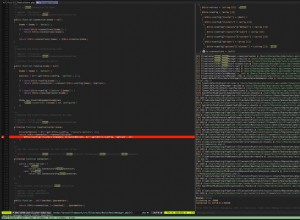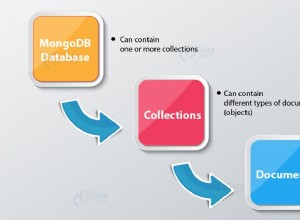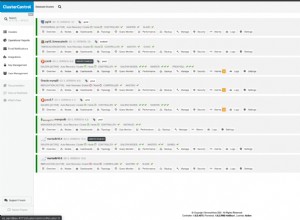Presumo che ogni altra configurazione richiesta per la mangusta sia corretta.
Nella riga seguente, penso che "myField" non sia necessario.
this.model("Bids").find({}, 'myField', function(err, results)Ecco qualcosa di più da zero, forse ti aiuterebbe a ripercorrere i tuoi passi:
var mongoose = require('mongoose');
//connection to Mongodb instance running on=======
//local machine or anywhere=========================
var uri = 'mongodb://localhost:27017/test';
var connection = mongoose.createConnection(uri);
//Define Schema==================================
var Schema = mongoose.Schema;
var BlogPostSchema = new Schema({
author: { type: Schema.Types.ObjectId },
title: String,
body: String
});
//Create model===================================================
var BlogPostModel = connection.model('BlogPost', BlogPostSchema);
//function to insert doc into model NOTE "pass in your =======
//callback or do away with it if you don't need one"=========
var insertBlogPost = function (doc, callback) {
//here is where or doc is converted to mongoose object
var newblogPost = new BlogPostModel(doc);
//save to db
newblogPost.save(function (err) {
assert.equal(null, err);
//invoke your call back if any
callback();
console.log("saved successfully");
});
};
//function to get all BlogPosts====================================
var getAllBlogPosts = function (callback) {
//mongoose get all docs. I think here answers your question directly
BlogPostModel.find(function (err, results) {
assert.equal(null, err);
//invoke callback with your mongoose returned result
callback(results);
});
};
//you can add as many functions as you need.
//Put all of your methods in a single object interface
//and expose this object using module.
var BlogPostManager = {
insertBlogPost: insertBlogPost,
getAllBlogPosts : getAllBlogPosts
}
module.exports = BlogPostManager;



